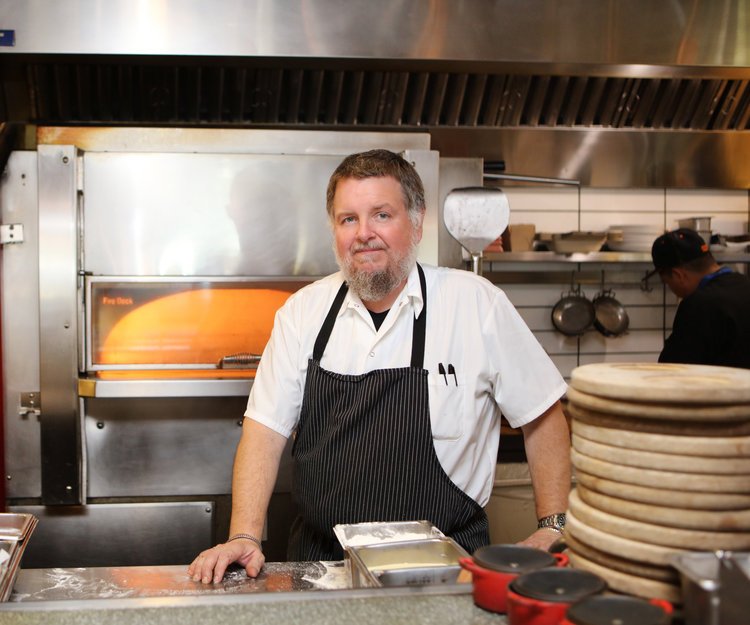Q&A WITH CHEF CHARLIE AYERS
Chef Charlie Ayers lives by the creed "eat, drink, and be merry." He's most widely known as the former executive chef for Google Inc. and for 10 years Chef Charlie ran the local favorite Calafia Café and Market A Go Go in downtown Palo Alto. He's also working with partners like New Wave Foods, Chowbotics and Tastes On The Fly on exciting projects around robotic food service, plant based foods and a new concept restaurant for the San Francisco Giants at SFO airport.
He's passionate about educating companies that "being green" is good for the consumer, team members, the environment and the local community. Like the "fine food for the fast crowd" Chef Charlie refined at Google, the fundamental goal of Calafia Café & Market a Go Go and all of Charlie's projects, is to provide the greater public with healthful, artisan-style, sustainable cuisine in a fast and affordable format.
When Chef Charlie isn't busy consulting start up tech companies, writing cookbooks, coordinating food service and backstage catering teams at open air music festivals, or ramping up to open his flagship restaurant operation, he enjoys relaxing at home cooking for friends and family trying out new and old favorite recipes , but don't be surprised if you spot Chef Charlie visiting local famous farmers markets across the country, while wearing one of his favorite crazy Hawaiian shirts.
We had an opportunity to ask Charlie a few questions:
Why is it important that society transition to sustainably produced food?
I truly think we must change our ways of sourcing our foods now before it’s too late. We must return to how our ancestors grew, produced, and sourced their foods, or we will have very little to offer future generations on many levels.
How did you get interested in sustainable cooking?
It started when I worked with Whole Foods Market in the early 1990s. Learning first hand how they sourced foods and why they worked with small local farmers, ranchers and dairy producers. Witnessing the impact they had on supporting small local agriculture and the surrounding communities which relied on revenues that flowed from these small local businesses. I really hadn’t experienced anything like that before.
What will it take for more chefs to support sustainably produced food in their menu?
Working together with their vendors and demanding they work with the local “little guys”, even if it costs more. Not taking the easy way out and always demanding the lowest pricing. Giving up a small percentage of their bottom line by reinvesting back into the farming, dairy and ranching communities. A commitment to their guests and customers, which might take a little education in the dining room. The guests will need to understand it will cost slightly more than the big corporate chain restaurant down the street or next door. Ideally we’re all investing in the future of food.
Outside of places like the Bay Area, do you think "mainstream" consumers are wanting more sustainable food dishes on the menu?
I travel a great deal for what I do for a living. In certain communities in this country it matters, while in other areas, like middle America that patronizes big box stores and count on that chain restaurant experience sadly it does not. Price point is the determining factor on how their decisions are made. I think they don’t care as much if it’s good for the local economy or the environment but rather how much they have left in their wallet after shopping at say a Walmart as opposed to supporting local farming and ranchers. Many Americans live paycheck to paycheck and want to do good for their families, but at the end of the day if it costs more and doesn’t go as far, they’ll make the decision which only benefits a merchant which is bringing in produce from Mexico or overseas, meats treated with growth hormones and farmed raised fish.
As a chef, what would help you further the push toward sustainable food?
The local and federal governments need to support these smaller operations or they will all eventually go away. The ones that will be left will only be able to service a small elite community. Big factory farming will prevail. The bigger picture is immigration reform, if we do not have the actual physical labor to do the work in the fields, if we do not pay living wages, if we do not provide affordable housing for the laborers then none of this will work. It’s many pieces to the puzzle which must fit together in order for we as chefs to do what we do. Right now the model is broken.

